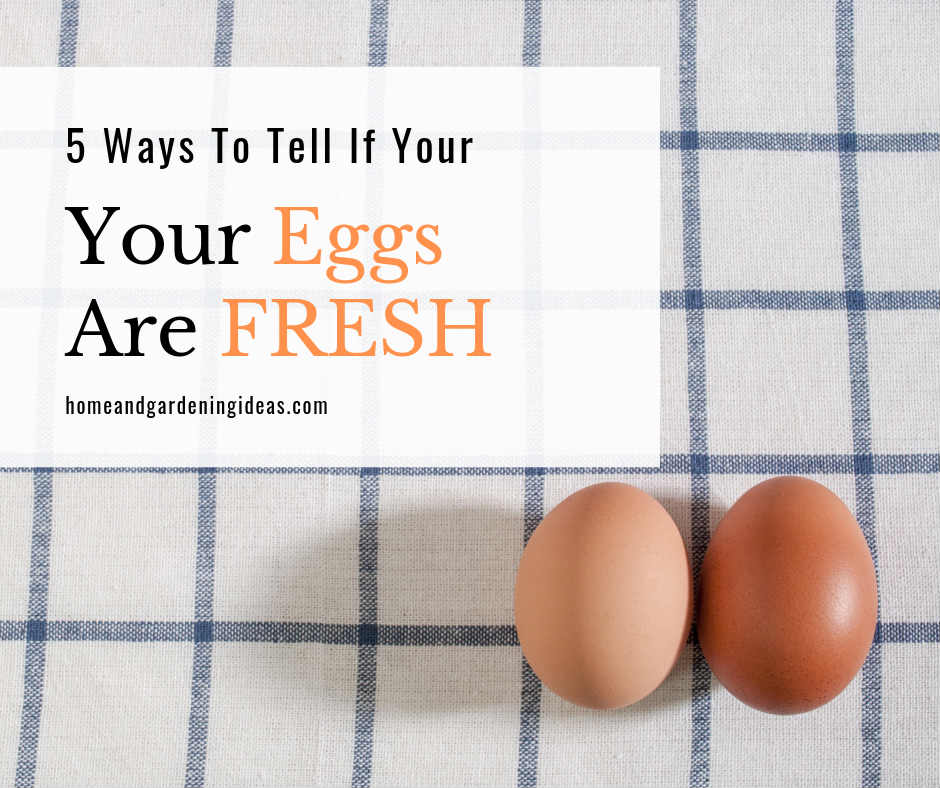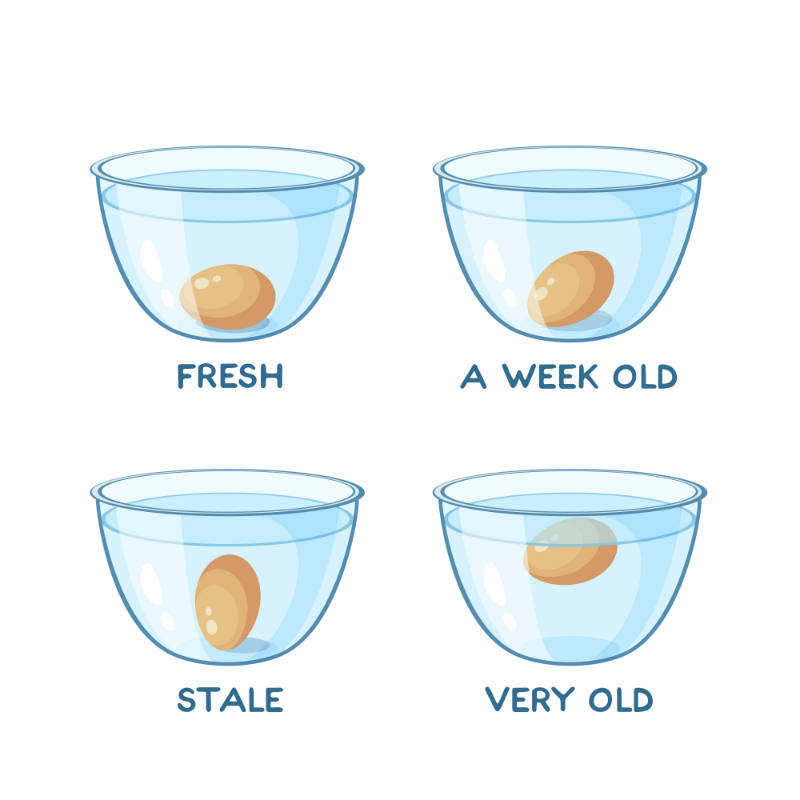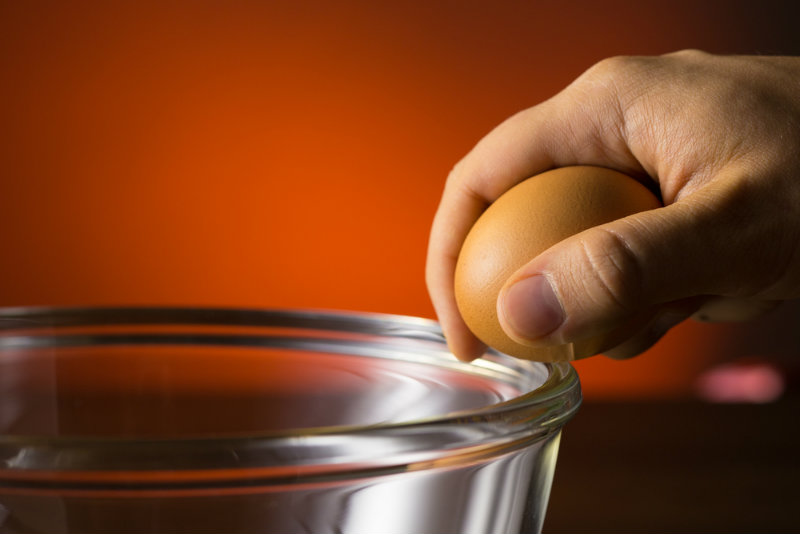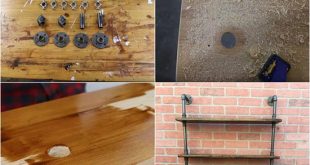How to Tell If Your Eggs are Fresh
In the perfect chicken world, you’d eat those fresh eggs are soon as you gather them from the chicken coop, but life isn’t perfect. If you’re like me, you have an abundance of eggs from your chickens, and they might gather on your kitchen counter longer than you planned. That leaves you wondering how to tell if your eggs are fresh.
Sometimes, my chickens like to lay their eggs in a corner that I didn’t expect, or I discover an egg tucked under the straw. Sneaky hens want to lay under bushes while they free range. Chickens are crafty at times, and, as you can see, there are many reasons why you might lose track of how old the eggs you have are.
How Longs Do Eggs Stay Fresh?
Eggs stay fresh a lot longer than you might realize. An egg will last on the counter at room temperature, unwashed, for two weeks at least.
Unwashed eggs stored in the refrigerator will last longer, around three months. Washed eggs last about two months. If you want to freeze eggs, you need to break them and beat them. Then, pour the scrambled egg into ice cube trays. One egg fits into one cube. Frozen eggs last for around a year. It’s best to use frozen eggs for baking.
The Egg Float Test
If you want to tell if your eggs are fresh, the egg float test is an excellent way to tell. If you’re in doubt, try to see if your eggs will float. Here is how you do the test.
- Fill up a clear glass or a bowl with warm water. Don’t use cold water because it can cause bacteria on the shell to be drawn inside of the egg.
- Gently drop the egg into the water. Look at what the egg does.
- If the egg lays flat on the bottom of the glass or bowl, it’s a freshly laid egg. If it floats, it’s bad.
Why Does the Egg Float Test Work?
As eggs get older, air starts to seep through the pores of the eggshell. That causes the air sac inside of the egg to get more substantial, and the inside of the egg starts to dry out. This air causes one end of the egg to rise.
An egg that is two to three weeks old starts to lift off the bottom of the glass. It’s still good to eat, but it’s losing valuable nutrients as it gets older. An egg that is a month old is angled up on the bottom of the glass, but it’s still good. Older eggs might be standing straight up.
However, eggs are still good to eat so long as one of the ends of the egg touches the bottom of the bowl or glass. It might not taste as fresh, but it does peel easier if you like hard-boiled eggs. Floating eggs are old and need to be thrown out.
The Bowl Test
Perhaps the most straightforward egg test to try is the bowl test. A rotten egg can be determined without breaking the shell because it’s harder to crack an older egg. The membrane starts to get tough, and it might even smell bad from the outside. If you give it a small crack, the rotten smell will come out.
The bowl test is easy. Simply crack the egg on the side of the bowl. If you don’t immediately smell something nasty, look for a few features.
- It’s hard to crack.
- A good color.
- Clear egg white
When an egg is out of its shell, you can check its freshness by observing it. This is why you should always crack an egg in a separate bowl than the recipe you’re creating. Who wants to break a rotten egg in perfectly good cake batter?
- Fresh eggs out of the shell have a thick white that doesn’t spread much. The yolk stands up and has a rounded dome.
- If the egg white is thin and spreads easily, it indicates that the egg is past its prime.
- Flattened yolk or one that breaks easily also means that the egg is old.
- Fresh egg white has a cloudy appearance. Clear egg white means that the egg is older, but that doesn’t mean the egg is rotten.
- If you smell a rotten egg, you’ll know immediately.
Candling Eggs
One of the oldest ways to test the freshness of an egg is by candling. Old-timers tested eggs with candles, which is how it got the name. You can do the same thing by shining a strong light through the egg in a dark room.
To candle an egg, follow these steps.
- Shine the light source next to the large end of the egg, and the inside of the shell will be illuminated.
- Do the contents fill the shell? If not, the egg isn’t fresh. Large air pockets indicate an older egg. Yolks don’t move freely because it doesn’t have air pockets.
When in Doubt
If you still don’t know if your eggs are good or bad, shake them around. Eggs that are bad making a sloshing sound inside, and you don’t want to eat those. Cracking a rotten egg smells terrible, and you don’t want to eat it then.
Eggs make sounds when shaking for the same reason that they float. When more air seeps into the egg, it allows the egg whites to start moving around easier. The older the egg, the more you’ll hear it shaking around inside of the egg.
Remember that putting eggs in water removes the natural bloom that keeps eggs fresh. So, if you do prefer the float test, you need to use it right away or put them in the refrigerator.
Checking Your Eggs
In an ideal world, we would date all of our eggs and never have to worry about finding hidden eggs. We would eat them quickly and never have an excess. Chicken owners know that it can be feast or famine with chickens sometimes, and when you’re in feast mode, that can be a lot of eggs.
Remember these ways to check to see if eggs are fresh the next time you’re curious.
 Home and Gardening Ideas At home and Gardening ideas we believe inspiring readers about homesteading, self sufficiency
Home and Gardening Ideas At home and Gardening ideas we believe inspiring readers about homesteading, self sufficiency








